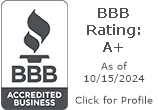Washington state has specific requirements for individuals and businesses seeking to become contractors. The state's Department of Labor & Industries (L&I) oversees contractor registration and licensing. Here are some key points to consider if you want to become a contractor in Washington:
- Business Structure: You need to establish a legal business entity in Washington if you don't already have one. This can be a sole proprietorship, partnership, limited liability company (LLC), or corporation.
- UBI Number: You'll need a Unified Business Identifier (UBI) number, which is issued by the Washington State Department of Revenue. This number is used for tax purposes and to identify your business in the state.
- License and Registration: Depending on the type of contracting work you plan to do, you may need a contractor's license or registration. Washington distinguishes between general contractors and specialty contractors.
- General Contractors: These contractors typically perform work that involves multiple trades and may require a general contractor's license. This license is issued by the Washington State Department of Labor & Industries. To obtain this license, you'll need to meet specific education, experience, and testing requirements.
- Specialty Contractors: If you plan to work in a specialized trade, such as electrical, plumbing, or HVAC, you may need a specialty contractor's license. Requirements for specialty licenses can vary, but they typically involve experience in the field and passing an exam.
- Insurance: Contractors in Washington are generally required to carry liability insurance. The specific insurance requirements can vary depending on the type of work you do and your license type.
- Surety Bond: Depending on your license type and the scope of your work, you may be required to post a surety bond. The bond serves as a financial guarantee to protect customers from any issues with your work.
- Register with L&I: You'll need to register your business with the Washington State Department of Labor & Industries. This registration is separate from obtaining a contractor's license and is needed to legally operate as a contractor in the state.
- Continuing Education: General contractors may be required to complete continuing education courses to maintain their license. These courses help contractors stay current with industry standards and regulations.
- Taxes: You'll need to be aware of and comply with Washington state tax requirements, including sales tax, business and occupation (B&O) tax, and possibly other local taxes.
It's important to note that the requirements for becoming a contractor in Washington can be complex and vary depending on your specific trade and scope of work. It's advisable to visit the Washington State Department of Labor & Industries website or contact them directly for the most up-to-date and detailed information on licensing and registration. Additionally, seeking legal and financial advice from professionals with expertise in the construction industry can be helpful in navigating the regulatory landscape.



